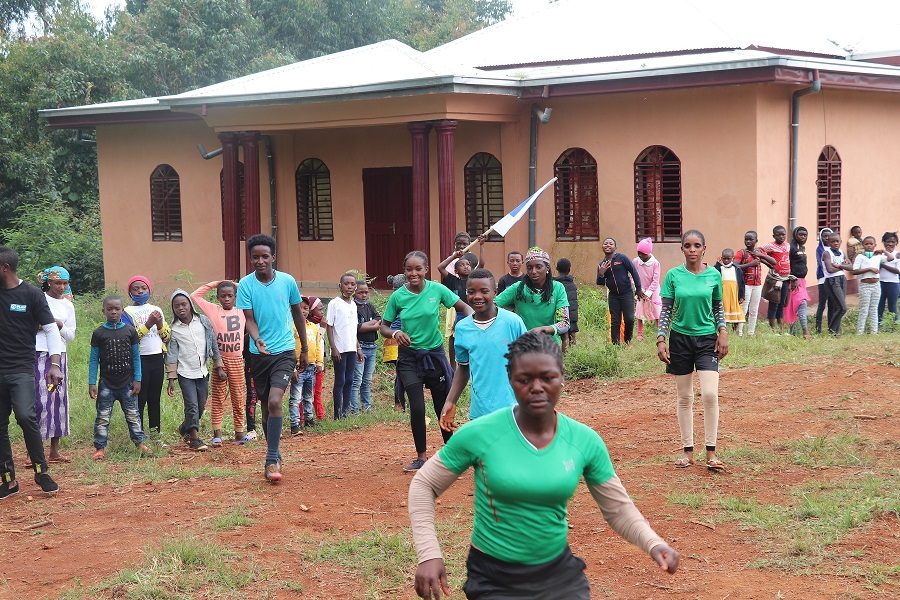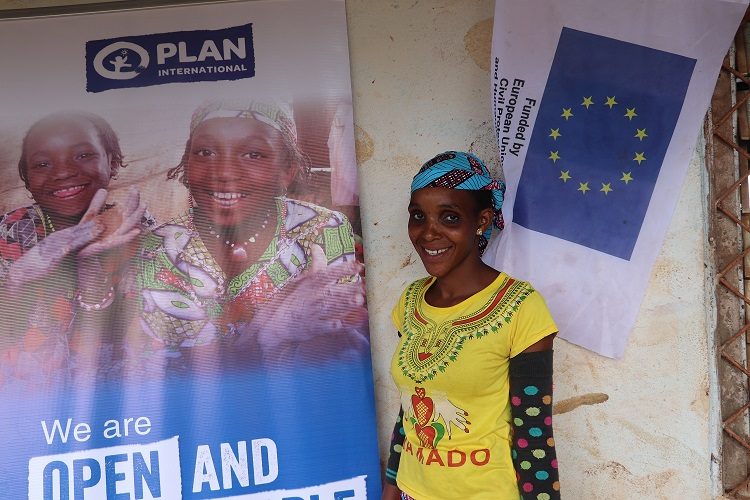Rekindling life into crisis-affected girls and boys in Cameroon
23 September 2020The outbreak of the socio-economic crisis in the north and south west regions of Cameroon strongly affected the life of the local population. Many children, and especially girls, experienced violence and stopped going to school as they were forced into domestic activities. To ensure the appropriate protection of youth and empowerment to enjoy their rights, Plan International joined forces with the the European Commission, DG for European Civil Protection and Humanitarian Aid Operations,to provide phsycological and social support to children and adolescents affected by the crisis.

This is Maliatou’s story
Maliatou, a 20-years-old woman, who lives in Bororo, a host community to internally displaced people (IDPs) in the North West region of Cameroon, participated in the project. Before the crisis, unlike most parents in the community, Maliatou’s parents believed in education and encouraged her schooling, which took her up to Primary 6, an uncommon example in her community. However, the outbreak of the socio-political crisis in the region worsened the situation. It made life more difficult for the two English-speaking areas of Cameroon. Schools, markets and businesses were shut down, people displaced internally and externally, and most children were exposed to violence. Girls were pushed into domestic assignments and forced into marriage, mostly to men far older than them, as a source of economic security for their families. “As a result of the crisis, I dropped out of school. My parents assigned domestic work to me and I was supposed to prepare for marriage. My mother introduced me to a 45 year old man to whom she referred as my future husband. I started seeing myself as a housewife and lost hope for the future,” says Maliatou. Like other girls in her community affected by the crisis, she was traumatised and socially reserved.

In such an uncertain and difficult setting, Plan International in collaboration with the European Commission, DG for European Civil Protection and Humanitarian Aid Operations developed a project to provide pshycological care and protection for children and adolescents affected by the crisis in regions. Maliatou was soon identified and introduced into one of the Child Friendly Spaces (CFS) set up by the project. During her first weeks at the centre, Maliatou was very reserved and hardly interacted with anyone. As days turned into weeks, and then to months, she gradually integrated into the recreational and creative activities of the CFS, such as life skills development and psychosocial support.Today, she has loosened up and has become very interactive. “Maliatou leads group activities in the CFS. She encourages and mobilizss other children and youths in her community to participate in the activities of the CFS. I feel so happy and fulfilled by the way she is developing her social skills and empowering girls to do the same,” says Courage, a social worker.
Maliatou now knows her rights and has challenged her parents about getting married to the man arranged for her. She is now very determined to continue her education. She now informs her peers about their hygiene and sanitation, and their rights, especially sexual and reproductive health rights. “Thanks to the activities of the CFS, I am now confident and can fit in easily with others. I now know that as a young girl, I have the right to decide on what I want; I will go back to school so that I can learn and become what I want to become,” says Maliatou with a broad smile on her face.
Just like Maliatou, the project has directly benefited over 33,039 children and adolescents, including their parents and guardians. However, despite the efforts of Plan International, the Government, and other humanitarian actors, there is still much to do, there are many children and youths in the region who are still in need and lack protection. “We have reviewed our country strategy, and emergency response plans, highlighting the most affected areas, and plan to reach the most vulnerable children and youths, especially girls. The availability of more resources will permit us to implement the strategies more effectively.” Says Dr Collins Sayang, Head of Programmes for Plan International Cameroon.
This project is carried out with the financial support of the European Commission, DG for European Civil Protection and Humanitarian Aid Operations.
Categories: Emergencies, Protection from violence


